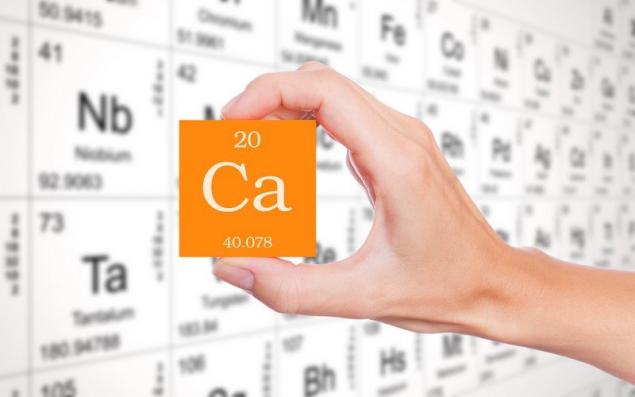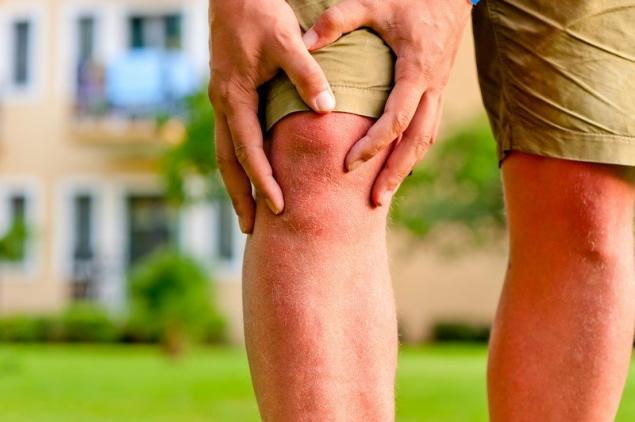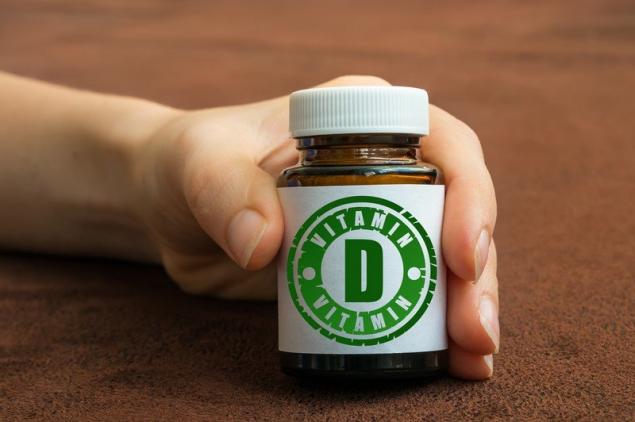269
Common myths about calcium
We all know how important vitamins and macronutrients are to our health. In particular, doctors secrete calcium, because it is an indispensable element to ensure the proper functioning of the female body. Its deficiency negatively affects the functions of many organs. But how do you avoid that?

Now there is so much talk about calcium that it is difficult to understand what is true and what is banal advertising. All these conversations have confused women and generated a lot of myths around this macroelement. Today's edition. "Site" will tell you calciumDeficiency and ways to prevent it.
Calcium is one of the most important elements that we need to maintain the normal functioning of the whole body. It is necessary for strong bones and teeth – no doubt. But not just for that. Calcium also regulates muscle contractions, is responsible for the narrowing and dilation of blood vessels and the stable functioning of the cardiovascular system.
So this is an indispensable macronutrient for such a complex system as the human body. If we lack calcium, the body begins to take it from the bones, making them more fragile.

How much calcium do we need to avoid deficiency? Adults should consume about 100 mg of calcium per day. Children under 8 years old are enough 800 mg, and from 9 to 18 years old about 1300 mg of calcium per day. Even more is required for pregnant and lactating women - 2000 mg per day.
Many women are concerned about the lack of calcium, because they have heard about how its deficiency negatively affects health. Therefore, they begin to take calcium in almost a handful. However, the shock intake of calcium not only strengthens bones, but also contributes to the accumulation of calcium in organs and tissues. And this is fraught with big trouble.

Without calcium, we really cannot live, but it does not apply to deficient substances. This means that it can be obtained from our daily diet if you eat right. The problem is low absorption of calcium. That is why its deficiency is felt more often than the deficiency of other minerals.
It is believed that because of this we may have osteoporosis. This is a disease in which the density of bones decreases, they become more fragile. And here we come to the first myth. Osteoporosis is a polyetiological disease, that is, a number of reasons lead to its occurrence.

Osteoporosis can cause hormonal disorders, genetic and age-related factors, as well as blood and digestive diseases. This means that you can not protect yourself from osteoporosis or cure it by swallowing calcium in tablets in its pure form. If calcium is simply not absorbed in the stomach, then it will never reach the goal, no matter how much you take.
The second myth: it is impossible to compensate for calcium deficiency with the help of tablets. Yes, pills can improve calcium absorption, but it’s not as good as it sounds. If a person takes calcium without a doctor’s prescription and appropriate indications, there is always a risk of turning the deficiency into an excess.

Calcium in excess complicates the work of the kidneys. Excess calcium can be deposited on the walls of blood vessels, hampering blood flow. That is why you should not take calcium tablets for nothing. Before taking it, it is better to undergo an examination and make sure that the body needs an additional dose of the macronutrient.
Another myth about taking calcium is that it is better absorbed along with vitamin D. But should I take the vitamin itself? In most regions of our country, the sunlight we receive throughout the year is enough. It is abundant enough to absorb calcium. Therefore, supplementing with vitamin D inside is completely meaningless.

Indeed, calcium is better absorbed with vitamin D. However, vitamin D taken orally is perhaps the only vitamin that can cause an overdose with serious consequences. As a result, we get hypercalcemia - an increased content of calcium in the blood. This in turn leads to serious malfunctions in the body.
For that matter, it is best to absorb vitamin D from foods. Earlier we talked about what foods help to make up for vitamin D deficiency.

Moving on, next myth. Many people start taking calcium to strengthen their hair and nails. But these are appendages of the skin, and they have a protein nature. The basis for the formation of hair and nails is keratin, not calcium. Therefore, fragility of nails and hair is not associated with a lack of calcium, rather with insufficient protein intake.
Each of these myths can harm a person, so be careful. However, calcium deficiency itself is not a myth, it is a real problem that often arises. And it, like other sores, is easier to prevent than to treat. But prevention should be carried out not with the help of tablets, but through a change in diet.
16044.
So. Which foods contain calcium? The macroelement is best absorbed from the main sources - milk, dairy and dairy products, sea and river fish. For the best absorption of calcium, phosphorus and magnesium are needed. They are contained in fish, legumes, cocoa and grain bread. Also, for the absorption of calcium, eggs, seafood and beef liver are needed - sources of vitamin D.
The main sources of calcium are dairy products. Not only do they contain a large amount of macroelement, so it is also in a convenient form for assimilation. This is facilitated by lactose contained in dairy products. Most calcium in hard cheeses: about 1000 mg per 100 grams of product.

Also, calcium is perfectly absorbed from beans, peas, lentils, spinach and all types of cabbage. A lot of it in the pumpkin, rosehip and all kinds of nuts. As you can see, there's plenty to choose from. If there are no medical indications and pronounced calcium deficiency, confirmed by tests, it is enough just to review your diet. Take care of yourself and always stay healthy!
Earlier, we told how the deficiency of various vitamins manifests itself on the skin and what symptoms should be paid attention to.
Did you like the article? Share it with your friends.

Now there is so much talk about calcium that it is difficult to understand what is true and what is banal advertising. All these conversations have confused women and generated a lot of myths around this macroelement. Today's edition. "Site" will tell you calciumDeficiency and ways to prevent it.
Calcium is one of the most important elements that we need to maintain the normal functioning of the whole body. It is necessary for strong bones and teeth – no doubt. But not just for that. Calcium also regulates muscle contractions, is responsible for the narrowing and dilation of blood vessels and the stable functioning of the cardiovascular system.
So this is an indispensable macronutrient for such a complex system as the human body. If we lack calcium, the body begins to take it from the bones, making them more fragile.

How much calcium do we need to avoid deficiency? Adults should consume about 100 mg of calcium per day. Children under 8 years old are enough 800 mg, and from 9 to 18 years old about 1300 mg of calcium per day. Even more is required for pregnant and lactating women - 2000 mg per day.
Many women are concerned about the lack of calcium, because they have heard about how its deficiency negatively affects health. Therefore, they begin to take calcium in almost a handful. However, the shock intake of calcium not only strengthens bones, but also contributes to the accumulation of calcium in organs and tissues. And this is fraught with big trouble.

Without calcium, we really cannot live, but it does not apply to deficient substances. This means that it can be obtained from our daily diet if you eat right. The problem is low absorption of calcium. That is why its deficiency is felt more often than the deficiency of other minerals.
It is believed that because of this we may have osteoporosis. This is a disease in which the density of bones decreases, they become more fragile. And here we come to the first myth. Osteoporosis is a polyetiological disease, that is, a number of reasons lead to its occurrence.

Osteoporosis can cause hormonal disorders, genetic and age-related factors, as well as blood and digestive diseases. This means that you can not protect yourself from osteoporosis or cure it by swallowing calcium in tablets in its pure form. If calcium is simply not absorbed in the stomach, then it will never reach the goal, no matter how much you take.
The second myth: it is impossible to compensate for calcium deficiency with the help of tablets. Yes, pills can improve calcium absorption, but it’s not as good as it sounds. If a person takes calcium without a doctor’s prescription and appropriate indications, there is always a risk of turning the deficiency into an excess.

Calcium in excess complicates the work of the kidneys. Excess calcium can be deposited on the walls of blood vessels, hampering blood flow. That is why you should not take calcium tablets for nothing. Before taking it, it is better to undergo an examination and make sure that the body needs an additional dose of the macronutrient.
Another myth about taking calcium is that it is better absorbed along with vitamin D. But should I take the vitamin itself? In most regions of our country, the sunlight we receive throughout the year is enough. It is abundant enough to absorb calcium. Therefore, supplementing with vitamin D inside is completely meaningless.

Indeed, calcium is better absorbed with vitamin D. However, vitamin D taken orally is perhaps the only vitamin that can cause an overdose with serious consequences. As a result, we get hypercalcemia - an increased content of calcium in the blood. This in turn leads to serious malfunctions in the body.
For that matter, it is best to absorb vitamin D from foods. Earlier we talked about what foods help to make up for vitamin D deficiency.

Moving on, next myth. Many people start taking calcium to strengthen their hair and nails. But these are appendages of the skin, and they have a protein nature. The basis for the formation of hair and nails is keratin, not calcium. Therefore, fragility of nails and hair is not associated with a lack of calcium, rather with insufficient protein intake.
Each of these myths can harm a person, so be careful. However, calcium deficiency itself is not a myth, it is a real problem that often arises. And it, like other sores, is easier to prevent than to treat. But prevention should be carried out not with the help of tablets, but through a change in diet.
16044.
So. Which foods contain calcium? The macroelement is best absorbed from the main sources - milk, dairy and dairy products, sea and river fish. For the best absorption of calcium, phosphorus and magnesium are needed. They are contained in fish, legumes, cocoa and grain bread. Also, for the absorption of calcium, eggs, seafood and beef liver are needed - sources of vitamin D.
The main sources of calcium are dairy products. Not only do they contain a large amount of macroelement, so it is also in a convenient form for assimilation. This is facilitated by lactose contained in dairy products. Most calcium in hard cheeses: about 1000 mg per 100 grams of product.

Also, calcium is perfectly absorbed from beans, peas, lentils, spinach and all types of cabbage. A lot of it in the pumpkin, rosehip and all kinds of nuts. As you can see, there's plenty to choose from. If there are no medical indications and pronounced calcium deficiency, confirmed by tests, it is enough just to review your diet. Take care of yourself and always stay healthy!
Earlier, we told how the deficiency of various vitamins manifests itself on the skin and what symptoms should be paid attention to.
Did you like the article? Share it with your friends.























